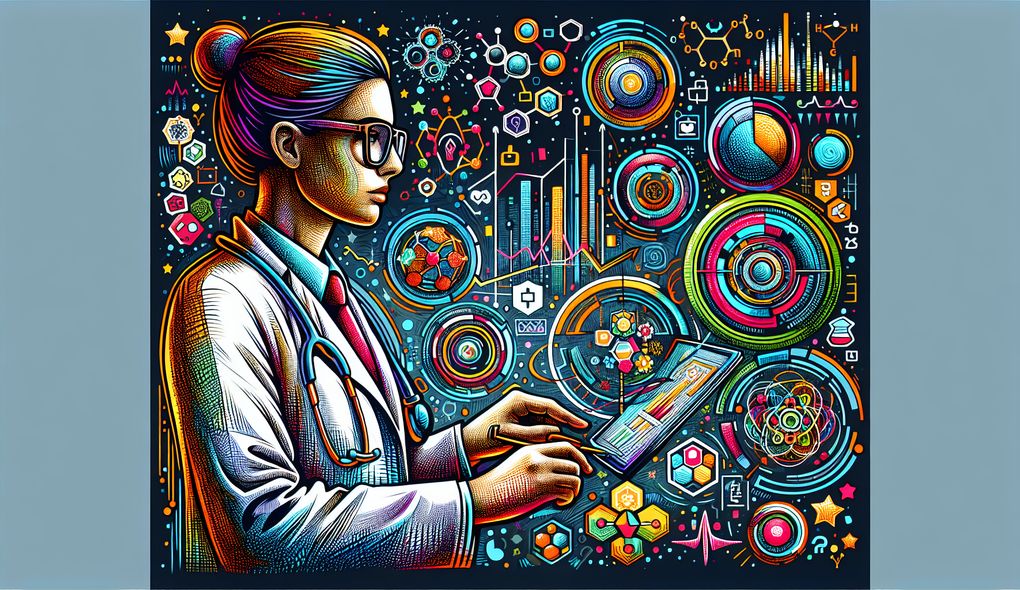Describe your experience with presenting data findings to both technical and non-technical audiences.
SENIOR LEVEL

Sample answer to the question:
In my previous role as a Healthcare Data Analyst, I frequently presented data findings to both technical and non-technical audiences. For technical audiences, I would provide in-depth explanations of the data analysis methods used, the statistical techniques applied, and the key insights derived from the data. I would use visualizations, such as charts and graphs, to help convey the information effectively. For non-technical audiences, I would focus on simplifying the findings and presenting them in a way that was easily understandable. I would use less technical jargon and more layman's terms to ensure clarity. Additionally, I would create visually appealing presentations with engaging visuals to make the information more digestible.
Here is a more solid answer:
During my tenure as a Healthcare Data Analyst, I regularly presented data findings to diverse audiences, including technical experts and non-technical stakeholders. When presenting to technical audiences, I would provide a comprehensive overview of the analysis process, highlighting the specific statistical techniques used, the data preprocessing methods implemented, and the software tools utilized. I always made sure to include visualizations, such as interactive dashboards and dynamic charts, to enhance understanding. For non-technical audiences, I would focus on crafting a compelling narrative around the data findings, emphasizing the key takeaways and actionable recommendations. I would use storytelling techniques, relatable examples, and accessible language to ensure clarity and engagement. As a result of my presentations, I received positive feedback on my ability to effectively communicate complex data concepts to both technical and non-technical individuals.
Why is this a more solid answer?
The solid answer builds upon the basic answer by providing more details about the candidate's experience and approach to presenting data findings. It includes specific examples such as using interactive dashboards and dynamic charts for technical audiences, as well as storytelling techniques for non-technical audiences. The answer also highlights the positive feedback received, demonstrating the impact of the candidate's presentations. However, it could still be improved by including measurable outcomes or specific results achieved as a result of the presentations.
An example of a exceptional answer:
Throughout my career as a Healthcare Data Scientist, I have excelled in presenting data findings to a wide range of audiences, including technical experts, healthcare professionals, executives, and external partners. When presenting to technical audiences, I not only focused on explaining the analysis methods and statistical techniques but also delved into the underlying algorithms and models utilized. I would walk the audience through the entire process, from data acquisition to result interpretation, ensuring complete transparency. To make the presentations more interactive, I developed interactive data visualizations and tools that allowed the audience to explore the data themselves. For non-technical audiences, I employed a storytelling approach, weaving a narrative around the data findings and contextualizing them within the broader healthcare landscape. I would incorporate real-world examples to illustrate the potential impact of the findings and present actionable recommendations in a concise and compelling manner. As a result of my presentations, I have not only received positive feedback but have also witnessed tangible outcomes, such as increased collaboration between technical and non-technical stakeholders, successful adoption of data-driven strategies, and improved patient care outcomes.
Why is this an exceptional answer?
The exceptional answer further expands upon the solid answer by providing more specific details about the candidate's experience and outcomes achieved through their presentations. It mentions presenting to a wider range of audiences, including healthcare professionals and executives, and highlights the use of interactive data visualizations and tools. The answer also emphasizes the impact of the presentations, such as increased collaboration and improved patient care outcomes. It effectively demonstrates the candidate's ability to communicate complex data to different audiences and the measurable results of their presentations.
How to prepare for this question:
- Familiarize yourself with the different types of audiences you may encounter: technical experts, healthcare professionals, executives, etc. Understand their needs, expectations, and level of familiarity with data.
- Develop strong storytelling skills. Practice presenting data findings in a narrative format that engages and resonates with non-technical audiences.
- Gain proficiency in data visualization tools and techniques. Learn how to create impactful and interactive visualizations that enhance understanding and engagement.
- Seek feedback on your presentation skills. Present to colleagues or mentors and ask for constructive criticism on your clarity, organization, and delivery.
- Stay up to date with the latest developments in data science and healthcare technology. This knowledge will not only enhance your expertise but also allow you to provide insightful and innovative presentations.
What are interviewers evaluating with this question?
- Verbal communication skills
- Written communication skills
- Ability to translate complex data into actionable recommendations

